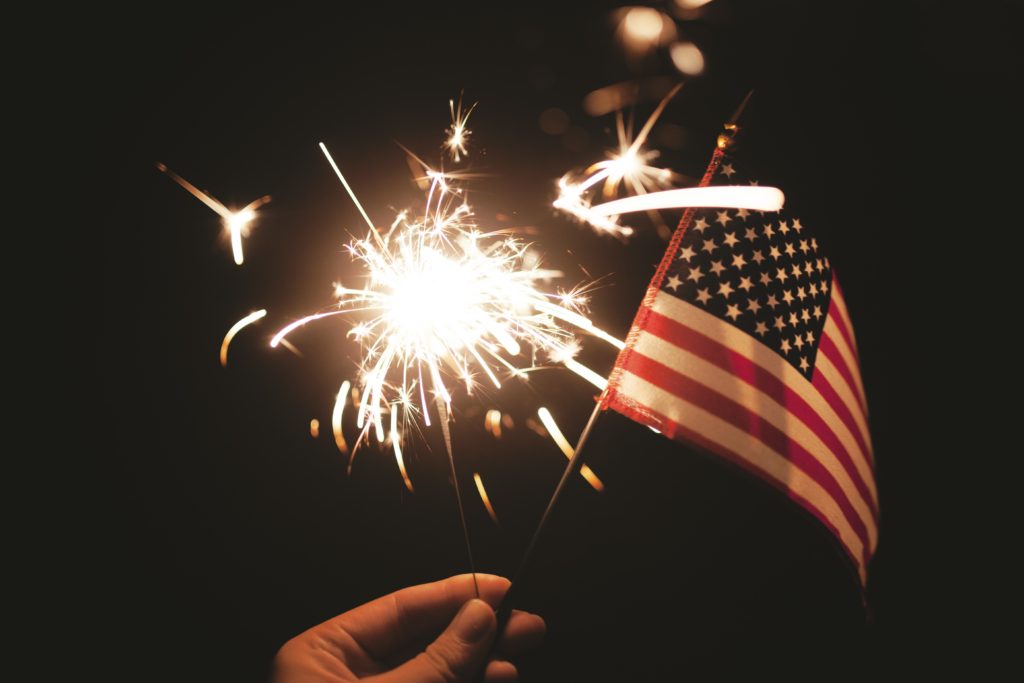It’s gusty where I am right now and outside my window I can see wisps of plant matter floating through the air. It feels like a metaphor for my life right now, and not just mine, but our society in general. Strong winds keep unsettling us, thrusting us in new situations. As I check social media, I see a lot of disbelief and dismay regarding the impeachment trial of Donald Trump. (And also some jokes.) Did any of us think we’d wind up here? I sure didn’t.
As I ponder the “why” of it all, I think about a conversation I had with dear friends of mine. I told them I noticed there’s a tendency for men who mistreat nature to also mistreat women. For instance, Trump continues to rollback environmental protections and he’s on record saying he can grab women by, well, you know the quote. Unbeknownst to me until recently, my observation is the premise of ecofeminism – a movement that sees a connection between the exploitation and degradation of the natural world and the subordination and oppression of women.
It makes sense because both the mistreatment of women and the plundering of Earth start with objectification. I don’t think Trump views women (or minorities for that matter) as people and instead reduces them to neatly packaged labels and harmful stereotypes. For instance, “Mexicans are rapists and drug dealers.” He and others like him view people and the environment in transactional terms: “What can I get?” They think about how they can benefit the most financially or in terms of acquiring power.
When Trump was first elected, I heard many people remark that they wanted a businessman at the helm of the United States. That aspect appealed to them. What people neglected to factor in is businessmen usually care first and foremost about profit, and when profit is the bottom line, people and the environment get reduced to objects. Soul is taken out of the equation. And “soul” is not limited to humans, in my opinion. I think even trees have souls or consciousness because more and more research emerges that trees talk to each other, support each other, and behave in ways that we never imagined. The same is likely true for other animate and inanimate objects.
To tie in my spiritual practice here, an ethical principle I live by is brahmacarya. It means “to remain attached to Brahma,” or Cosmic Consciousness, or Source, or whatever term you want to use. My spiritual teacher says, “Whenever people do some work or think of doing any work extroversially, they look upon the object, with which they come in contact, as a crude finite entity. Because of their constant aspiration for material achievement their mind is so engrossed in material objects that their very consciousness becomes crude. The meaning of practicing brahmacarya is to treat the object with which one comes in contact as different expressions of Brahma and not as crude forms.”
I know some traditions define brahmacarya as abstinence. I think that’s a definition that evolved over time because if you think about it, a lack of brahmacarya means objectification, and that can lead to sexual misconduct. To avoid sexual misconduct and to simplify matters, people started equating brahmacarya with abstinence.
To go back to Donald Trump, there’s nothing I can do to encourage him to “re-soul” the people and things in his life, but perhaps I can spur the people around me to engage in brahmacarya. It’s hard to constantly think of something as an expression of an infinite loving consciousness, but it’s more than a mental exercise. It’s also our actions. When you see a moth fluttering inside your house, do you kill it without a second thought? Or do you try to trap it and put it outside? When something breaks do you try to fix it or do you immediately throw it away, thereby increasing the environmental impact? All of these actions matter because it’s our way of saying plants, animals, people, our environment, are sacred, and it’s our way of reintroducing soul into what often seems like a soul-less world. And I’m all for more soul.
I dream of a world where we treat everything as a different expression of Cosmic Consciousness. A world where we stop objectifying everything and everyone because we see there’s more beneath the surface than we previously imagined. A world where we “re-soul” our planet by recognizing everything matters and we act accordingly.
Another world is not only possible, it’s probable.
I’m officially a podcast! Click here if you want to check it out. =)
The other day, a friend posed a question on facebook: “Where’s the line between hate speech and incitement? What’s an example of someone talking about white supremacy, warning against ‘race mixing mongrelization’ and takeover by international Jewry, recommending re-education or death for gays, deportation of migrants, where you could make an intellectually honest assessment that they are ‘just stating their opinion’ with no intention of recruiting?”
I love that my friend brought this up because it’s a reminder that ideas have consequences; words matter. Far from the childhood rejoinder, “Sticks and stones may break my bones but words will never hurt me,” words DO hurt. They hurt a lot, especially when those words translate into policies and practices.
In the U.S., we tout how great our country is because we have free speech. But is it really free? I’d argue that freedom of speech comes with a cost – sometimes emotionally and sometimes physically. People are literally paying with their lives sometimes; the price doesn’t get any higher than that.
I’m a journalist so in no way, shape, or form am I arguing for governmental censorship. Having governmental restrictions on what we can and cannot say usually ends in disaster. However, there is a big difference between a whistleblower exposing the dark underbelly of an institution and spewing hate. Essentially what I’m advocating for is subtlety of expression.
In yoga, there is a concept called satya. It implies action of mind and the right use of words with the spirit of welfare. Satya is often translated as benevolent truthfulness, but I think the concept is more subtle than that because it’s so relative. There are no hard and fast rules. Sometimes it’s in the best interest of all parties involved to be brutally honest and sometimes it’s better to withhold the truth. What’s really important is welfare. Will the comment help the person or hurt them? And if it will hurt them but they need to hear it, how can the comment be delivered in the gentlest way? If I’m a terrible singer and I’m convinced I’m the next American Idol, no one is doing me any favors by saying my singing voice is fantastic. To practice satya, it would be better to say, “I know you love to sing Rebekah, and that’s great! but I think you could sound even better if you took singing lessons.”
Hate speech I would argue is never about the welfare of others and always about expressing fear and insecurity. And instead of adding to the din by declaring the white supremacists to be racist jerks, to put it politely, I think we’d be better served at asking what the person’s underlying needs are and how can those be addressed. Nothing gets solved by shouting at each other and in fact, all the shouting can have dire consequences. I know that sounds terribly naive, as if I’m advocating we all sit by the campfire and sing “Kumbaye,” but I’m not. White supremacist jerks should not be allowed to call the shots or get into positions of power, and it’s our responsibility to make that so. But to really solve anything we have to address their unmet needs and those of their ilk while also practicing satya ourselves. It’s a tall order but I believe it can be done.
I dream of a world where we take into account the welfare of others, and ourselves, when we communicate. A world where we speak the truth, or withhold it, without hurting others. A world where instead of freedom of expression we practice subtlety of expression.
Another world is not only possible, it’s probable.
The other day, my brother told me he boils down his spiritual practice to two tenets: meditate, and be a good person. That got me thinking, what does it mean to be a good person? Some people say being a good person means following the 10 commandments: don’t steal, kill anybody, or commit adultery, to name a few. The yogic version is follow the yamas and the niyamas, which also have some crossover with the 10 commandments but include things like cleanliness and contentment as well. Is that enough though?
As our national dialogue is focused on the Syrian refugee crisis, I can’t help but think, no, it’s not. It’s not enough to be nice. How does that solve the problem of tons of people who no longer have anywhere to live?
Don’t get me wrong, I think it’s important to be kind to others, but that kindness has to translate into action, such as offering a room to a refugee or pressuring the government to accept more of them. There are terrible things that go on in the world, but we are the ones who have to do something about it. Robert Swan says, “The greatest threat to our planet is the belief that someone else will save it.”
If we, the good people, don’t band together, don’t rise up and do something, terrible things will continue to happen. My desire to serve others, my passion for the environment, everything I hold dear, stems from my spiritual practice. I want to help others because I don’t see other people as “other,” I see them as my brothers and sisters. I see them as a part of my larger family so of course I want to help them. Just as I couldn’t stand to see my blood sister go hungry, nor can I stand to see my spiritual sister go hungry. That is a direct result of spirituality opening my heart more.
I would say, no, it’s not enough to be a good person if being a good person doesn’t translate into action. My spiritual teacher says the same thing and in fact, declares following yama and niyama is the prerequisite to learning meditation. Be a good person first, and then build on that.
I love superhero movies (they’re my favorite genre actually), but as much as I kind of wish Thor would descend to Earth and save us from ourselves, I don’t see any evidence of that happening soon. Batman is more of a possibility because he’s human, but why should all the work fall on his shoulders? My spiritual teacher also says, and this is paraphrasing, that the strength of five good people is more than the united strength of a hundred immoral people. I take that to mean if we all unite together we can overpower the dark forces in the world. We can stop the terrors and tortures, but it requires more than being honest.
I dream of a world where we recognize being a good person isn’t good enough. A world where our goodness translates into action. A world where the good people unite to keep the immoral people in check. A world where we help each other out and refuse to sit idly by as we watch atrocities continue to happen because the love in our hearts is too great to allow it.
Another world is not only possible, it’s probable.


